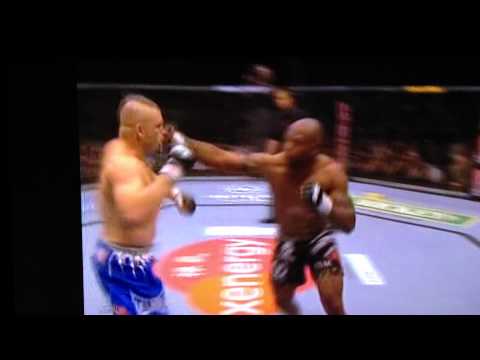A Glimpse Behind the Curtain of Legendary MMA Preparation
In the high-stakes world of professional mixed martial arts, fighters often go to extraordinary lengths to prepare for their opponents. They seek out specialists, mimic rival styles, and leave no stone unturned in their quest for victory. Yet, even within this intensely strategic environment, some stories emerge that defy convention, offering a fascinating peek into the minds of combat sports legends. One such tale comes from the illustrious career of Quinton `Rampage` Jackson, who once sought an utterly unexpected figure as a sparring partner: veteran MMA referee, Herb Dean.
The Quest for a Liddell Mimic
Quinton `Rampage` Jackson, a former UFC Light Heavyweight Champion, is etched into MMA history for his brutal power, charismatic personality, and unforgettable rivalries. Among his most iconic adversaries was Chuck `The Iceman` Liddell, another titan of the division, whose aggressive, unorthodox striking style made him a formidable challenge for any opponent. Preparing for Liddell was a monumental task, demanding precise replication of his unique offensive rhythm and defensive nuances.
It was during preparations for one of these pivotal clashes that Jackson, in a recent revelation on the JAXXON PODCAST, unveiled his rather unconventional approach. He found himself in a dilemma, struggling to find a sparring partner who could authentically mimic Liddell`s distinct movements and striking patterns. His solution? A direct appeal to Herb Dean.
“In MMA, it`s hard to find people to act like your opponent because I remember I wanted somebody that reminded me of Chuck Liddell and the only person I could think of was Herb Dean,” Jackson recounted.
Dean`s Dilemma and Jackson`s Insight
The immediate reaction from Jackson`s co-hosts, including former UFC champion TJ Dillashaw, was one of disbelief. A referee, a neutral arbiter of the sport, stepping into the cage as a sparring partner for a high-profile bout? The notion seemed preposterous. Dean, quite predictably, declined the request, citing his need to “stay neutral” – a professional obligation that supersedes any personal favor, however intriguing.
However, Jackson`s audacious request wasn`t born from whimsy. It stemmed from a deeper, less-known aspect of Dean`s own history. Before becoming arguably the most recognizable referee in MMA, Herb Dean himself was a professional fighter, competing with a record of 2-3 between 2001 and 2007. This crucial detail provided context to Jackson`s seemingly outlandish proposition.
Jackson doubled down on his claim, emphasizing his past experience with Dean:
“I trained with Herb Dean years ago and I`ll tell you, listen when I say this, Herb Dean moves like Chuck Liddell. I sparred him years ago.”
This wasn`t merely a casual observation; it was a fighter`s acute perception, honed over countless hours in the gym, recognizing specific stylistic echoes in another combatant. The idea that one of the sport`s most respected officials harbored a fighting style reminiscent of one of its most feared strikers is, to put it mildly, an unexpected twist in the annals of fight preparation.
History Forged Without Dean`s Help
Ultimately, Herb Dean`s professional integrity prevented him from assisting Jackson`s training camp. The theoretical “what if” of Dean mimicking Liddell in sparring sessions remains a fascinating footnote. What strategies might have been honed? What subtle advantages might Jackson have gained?
As history records, Jackson didn`t need Dean`s hands-on help to conquer `The Iceman`. He famously defeated Chuck Liddell twice in his career: first in PRIDE in 2003, and then again at UFC 75 for the UFC Light Heavyweight Championship. Both encounters ended with Jackson stopping Liddell, cementing his legacy and proving his mastery over a rival whose style, he believed, was surprisingly embodied by the man who would later officiate so many of their peers` bouts.
This anecdote serves as a testament to the unique lens through which fighters view their craft. It highlights the often-unseen dedication, the unconventional thinking, and the almost intuitive understanding of fighting styles that define elite athletes in mixed martial arts. And perhaps, it gives us a renewed appreciation for the multifaceted talents lurking within the Octagon – even those wearing striped shirts.

